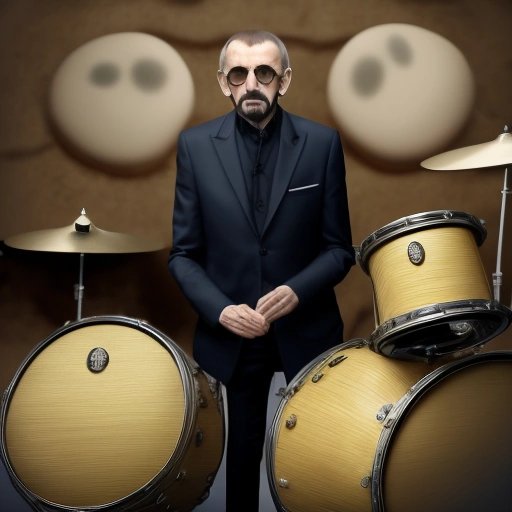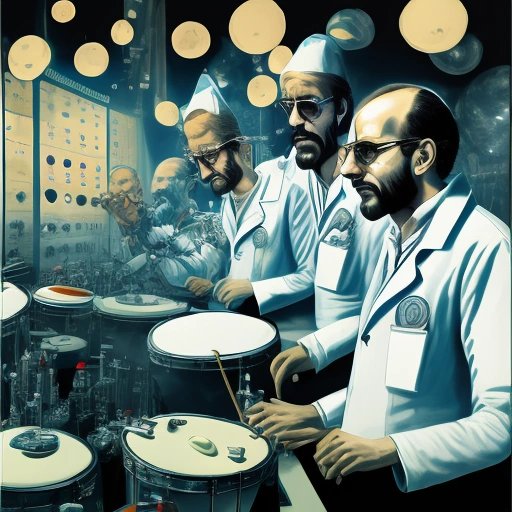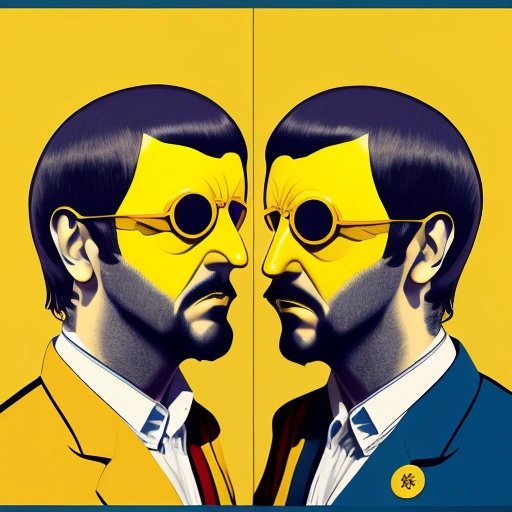In a turn of events worthy of a science fiction movie, scientists from the Institute of Genetic Rendition and Correction recently unveiled their groundbreaking genetic creation: a cloned version of The Beatles' drummer, Ringo Starr. This announcement has left both the scientific and music communities simultaneously perplexed and intrigued.
The story behind the clone's inception is as dramatic as any number one single. It all began in 2017, when a group of researchers, working on understanding the genetic makeup of artistic geniuses, acquired a strand of Ringo Starr's hair. The motive was harmless, as the scientists initially planned to only analyze the drummer's genetic code. However, things escalated quickly when a late-night laboratory mishap led to a petri dish prank war, culminating in an "accidental" cloning of the legendary musician.
The lead scientist behind the controversial project, Dr. Emil Strudelwitz, explained the unique situation during a press conference. "Upon discovering the existence of the Ringo clone, we were initially worried about the ethical implications. But after much deliberation, we decided to care for and study the clone in secret for the betterment of mankind and the advancement of science. Besides, can you really have too many Beatles in the world?"
Researchers were surprised to find that the Ringo clone, whom they affectionately named "Bingo", picked up drumming at an alarming rate. In less than three weeks, Bingo was able to play all the hits, including "Come Together" and "Twist and Shout", with the same proficiency as his original counterpart.
Dr. Strudelwitz pointed out that Bingo's abilities went beyond music. "In addition to his drumming prowess, Bingo showed an incredible aptitude for painting and sculpting – skills that Ringo Starr himself developed after The Beatles disbanded. It appears that we have not only cloned his physical appearance, but also his artistic talents. Quite extraordinary!"
When asked whether the team had considered cloning other notable figures, Dr. Strudelwitz hesitated for a moment before responding with a coy smile. "Well, we do have some interesting strands of hair… but let's just stick to one clone at a time, shall we?"
The discovery of the cloned Ringo Starr has sparked a considerable amount of speculation and debate. Fans worldwide are questioning the implications of the scientific breakthrough and wondering whether a collaboration between the original Ringo Starr and his clone would result in the ultimate Beatles tribute band.
Concerns have also been raised regarding the ethical aspects of cloning such a high-profile individual without his consent. When questioned about this predicament, Dr. Strudelwitz acknowledged the moral challenges involved. "Yes, we understand the ethical concerns that have been raised. Our primary goal was to break new ground in the fields of genetic research and artistic genius analysis. We never intended to disrupt the life of Ringo Starr or disrespect his legacy."
As for now, it seems that Bingo, the Ringo clone, will remain in the care of the institution. Scientists are intent on studying the relationship between genetic code and creative ability, while the world waits with bated breath for more news on this astonishing story. Will this mark a new era in genetic research and artistic potential, or is it all just a bizarre twist in the ongoing saga of The Beatles? Only time will tell.


